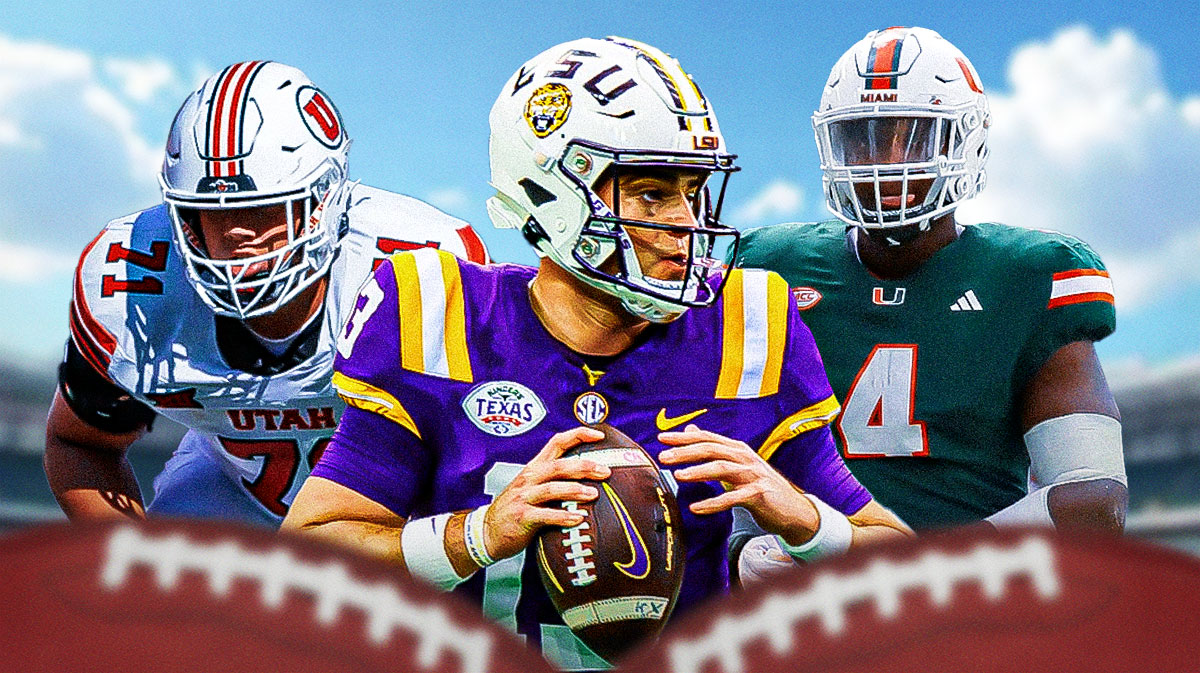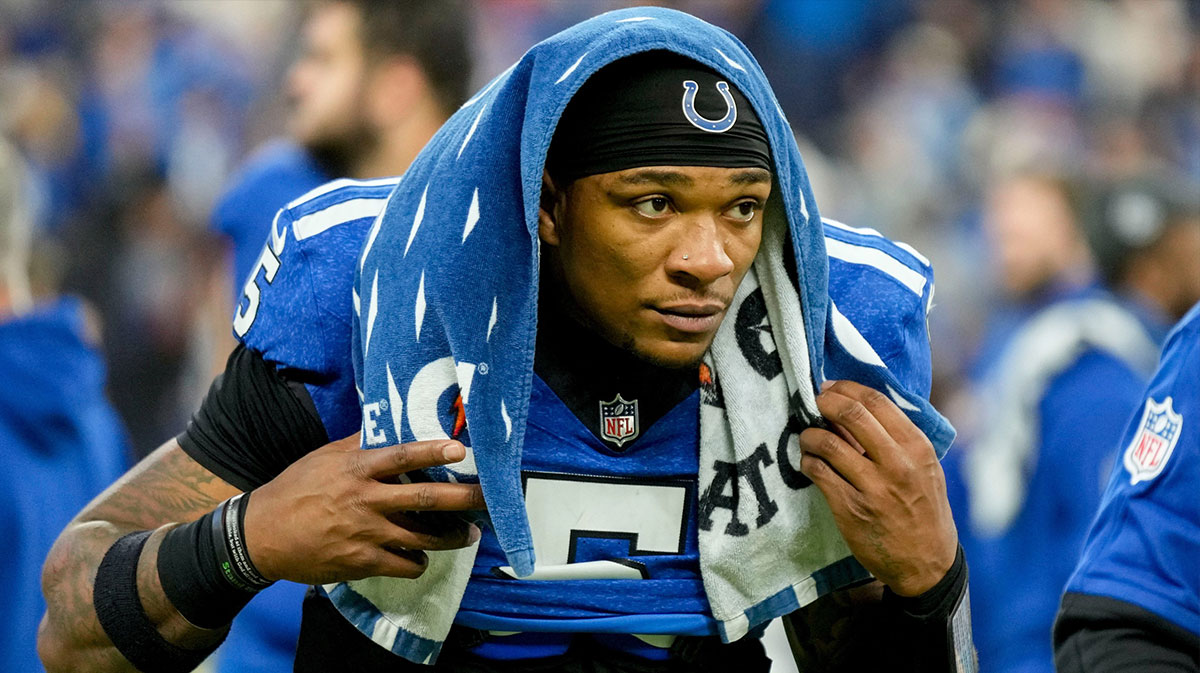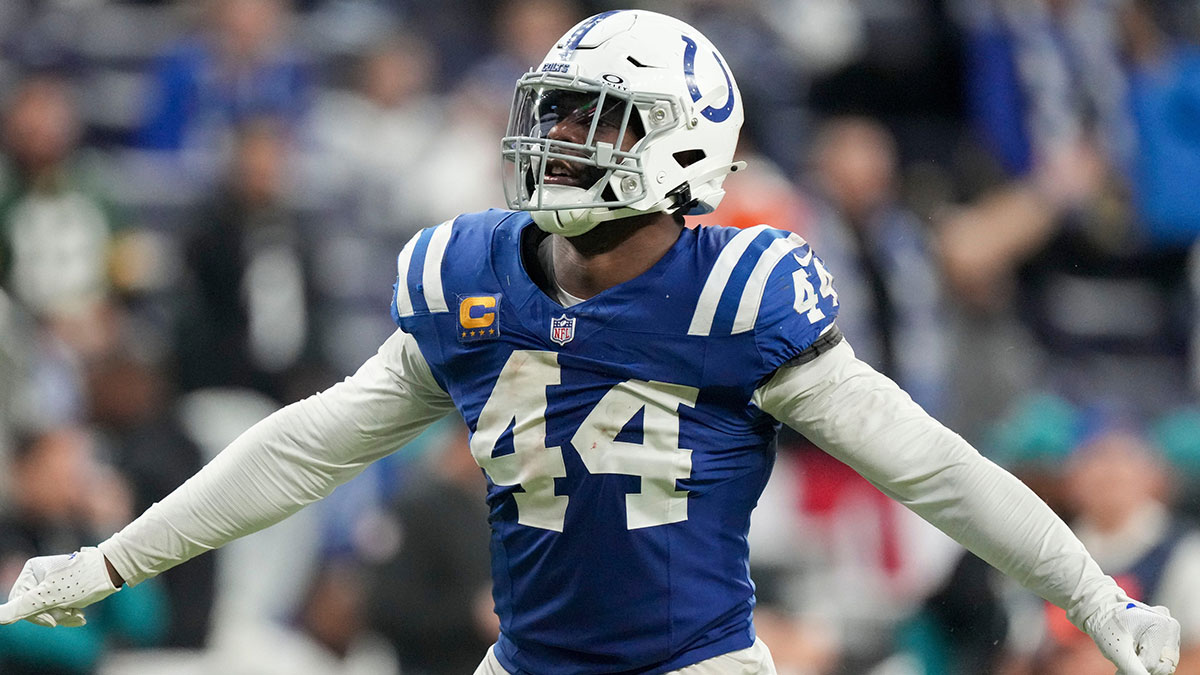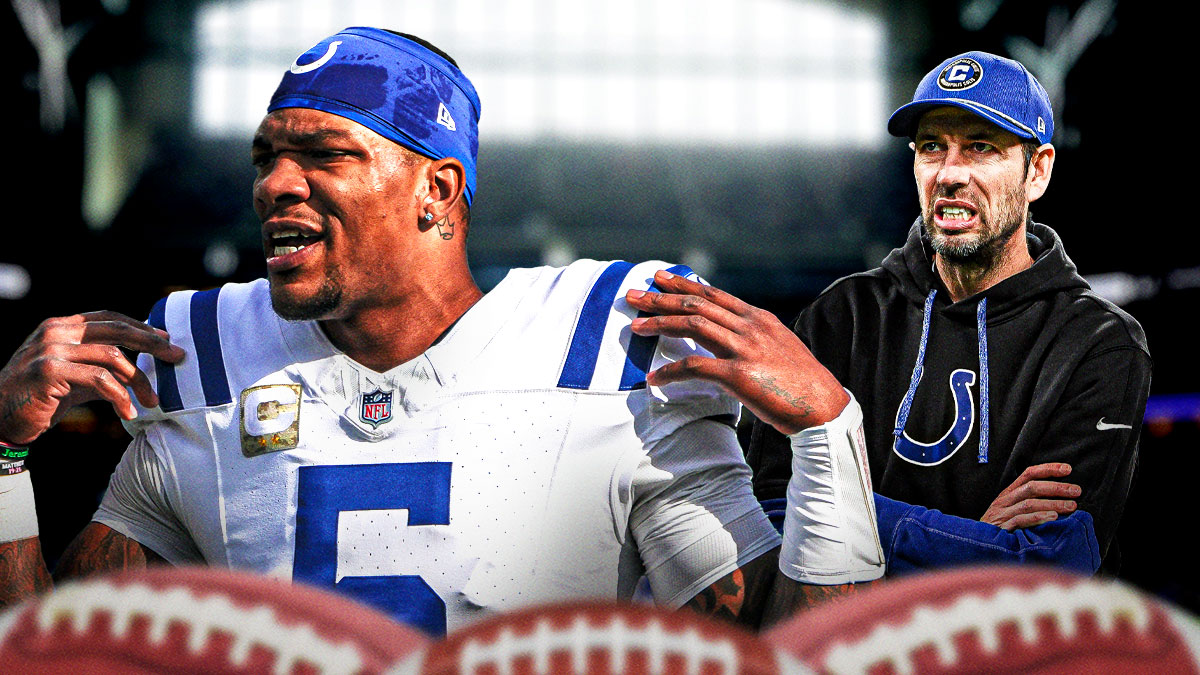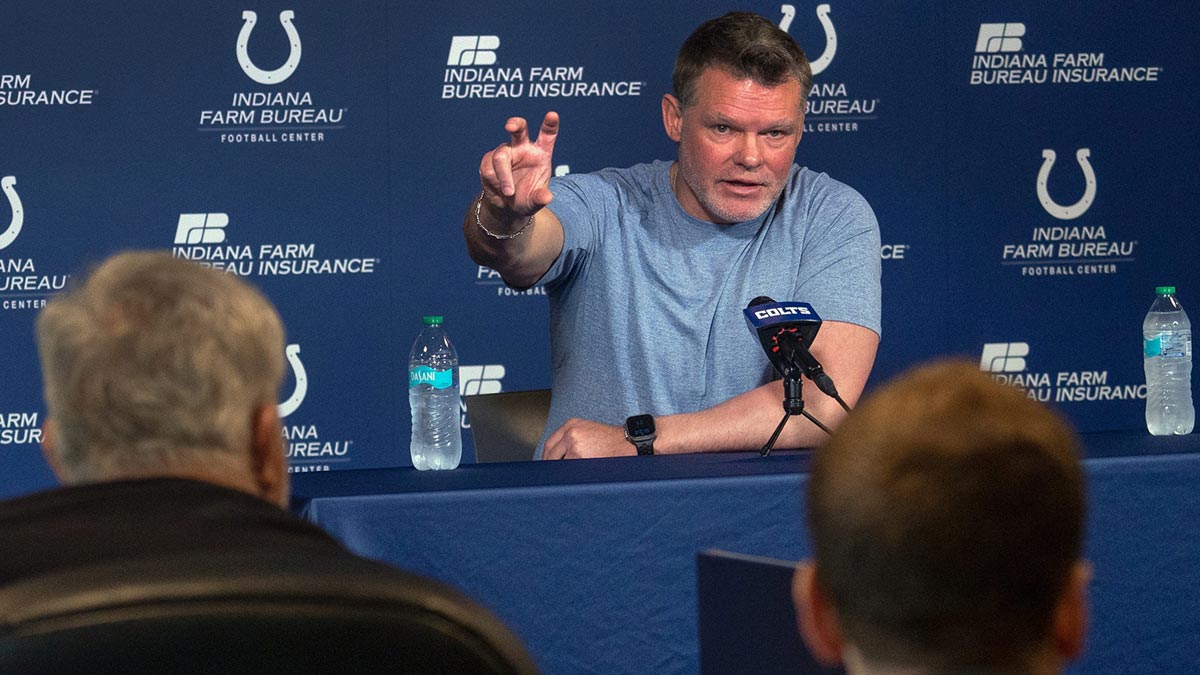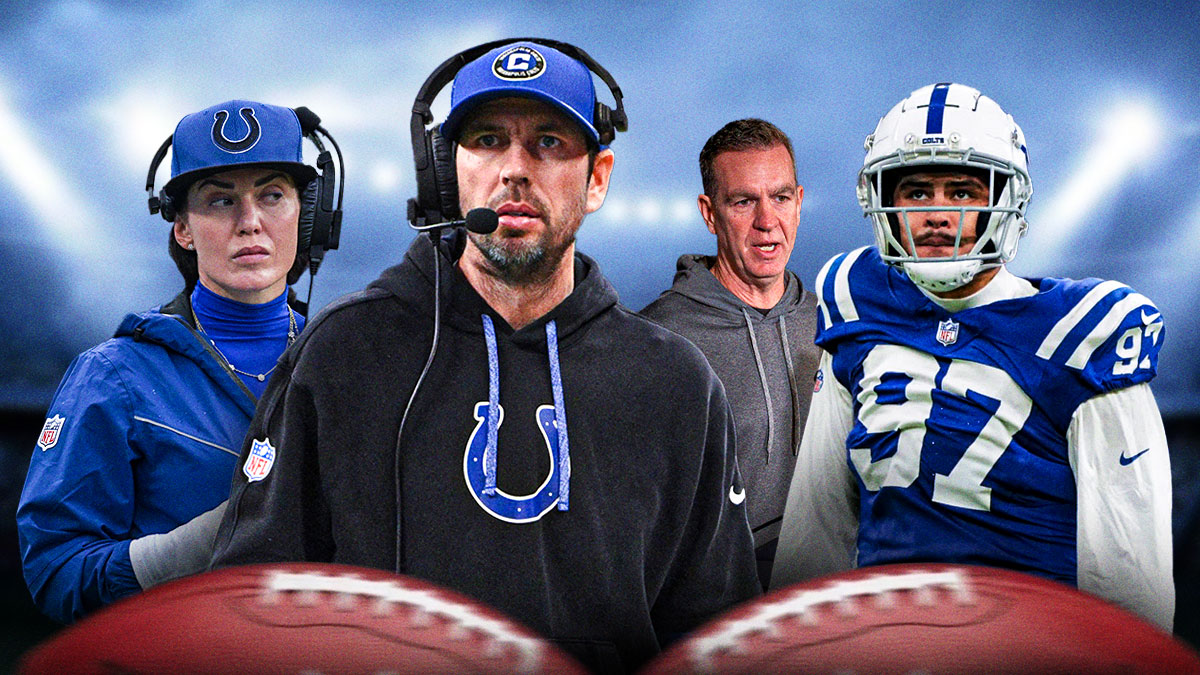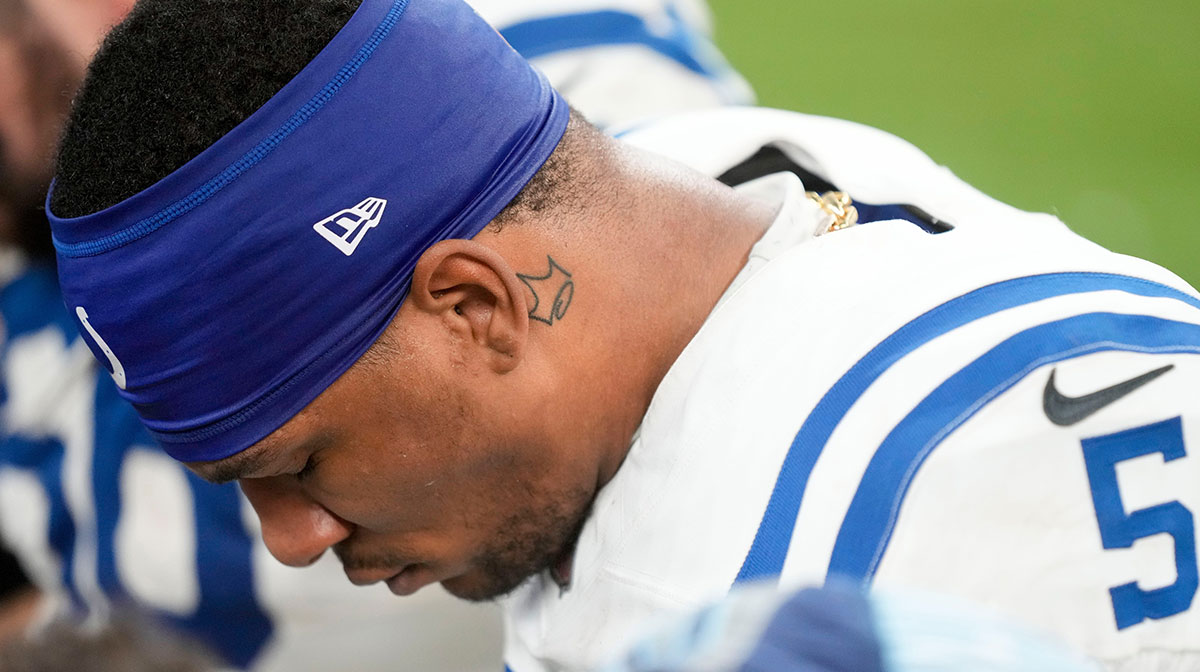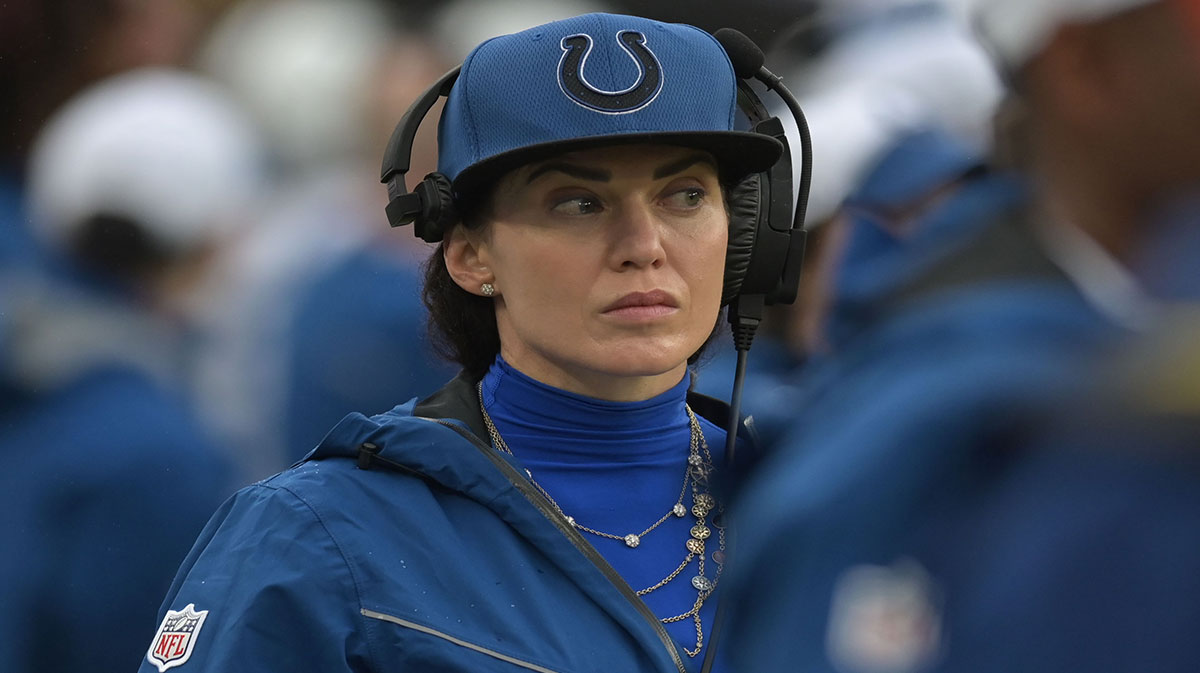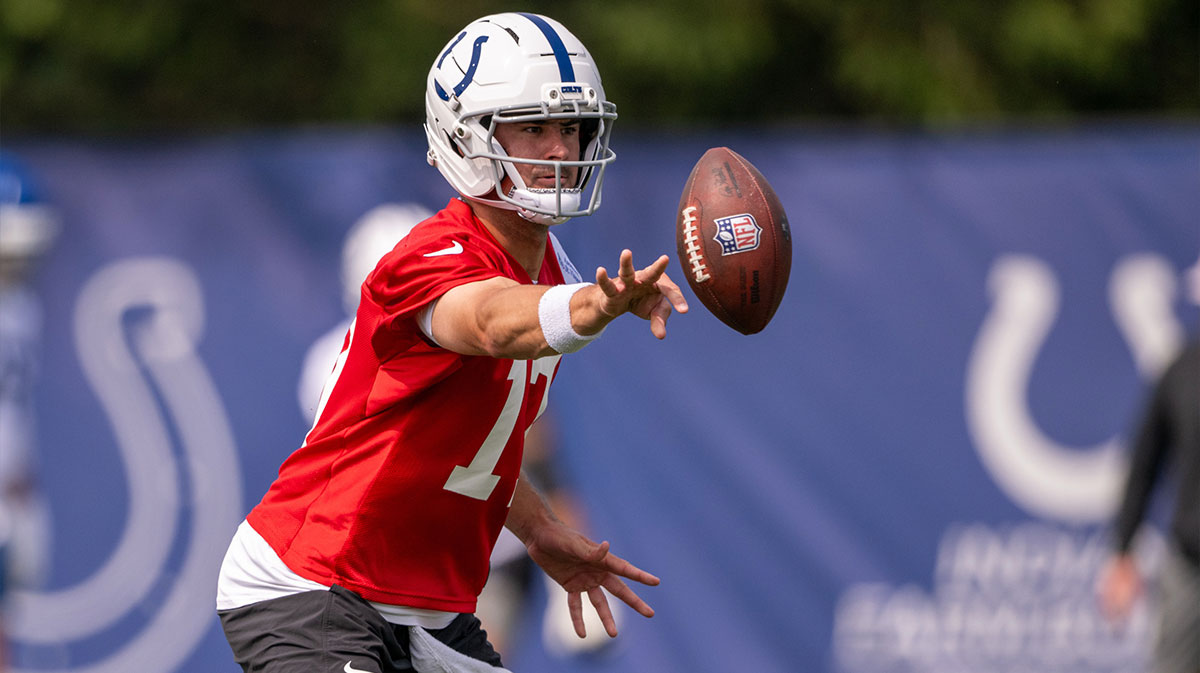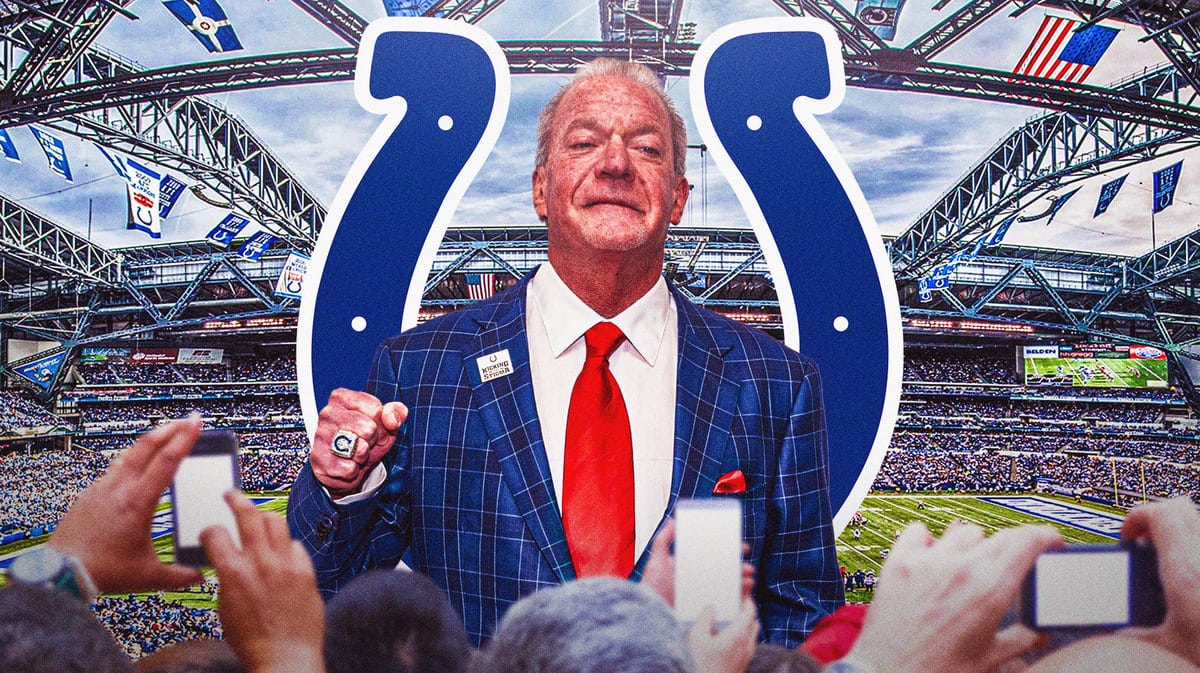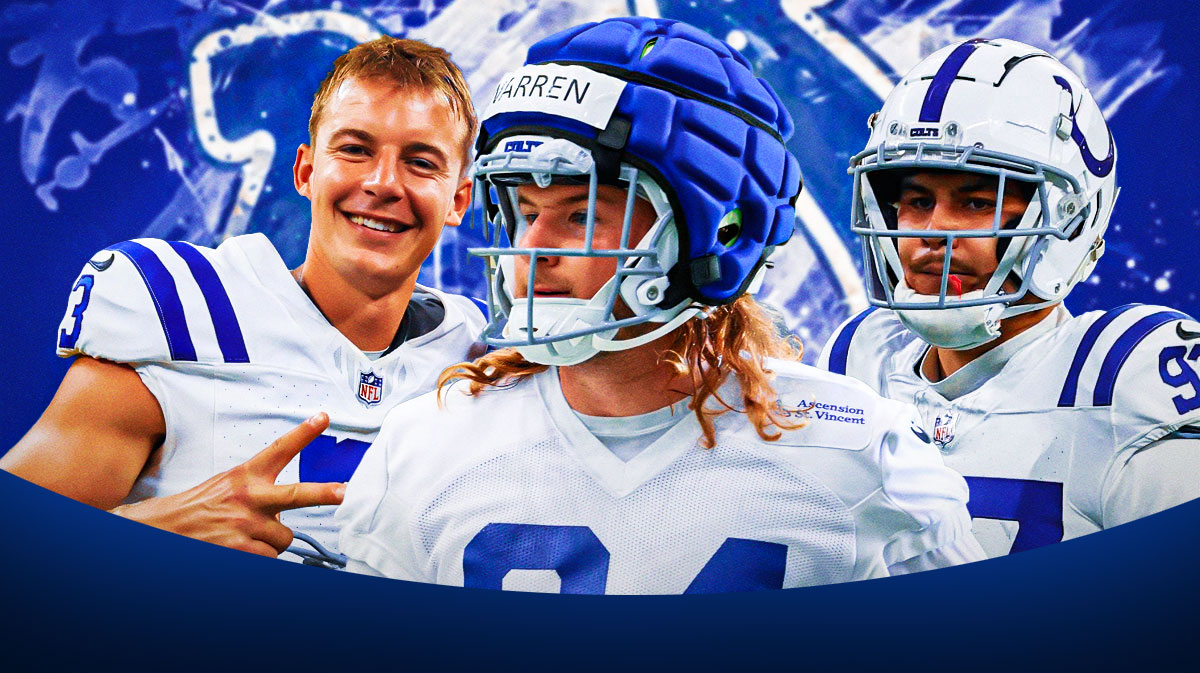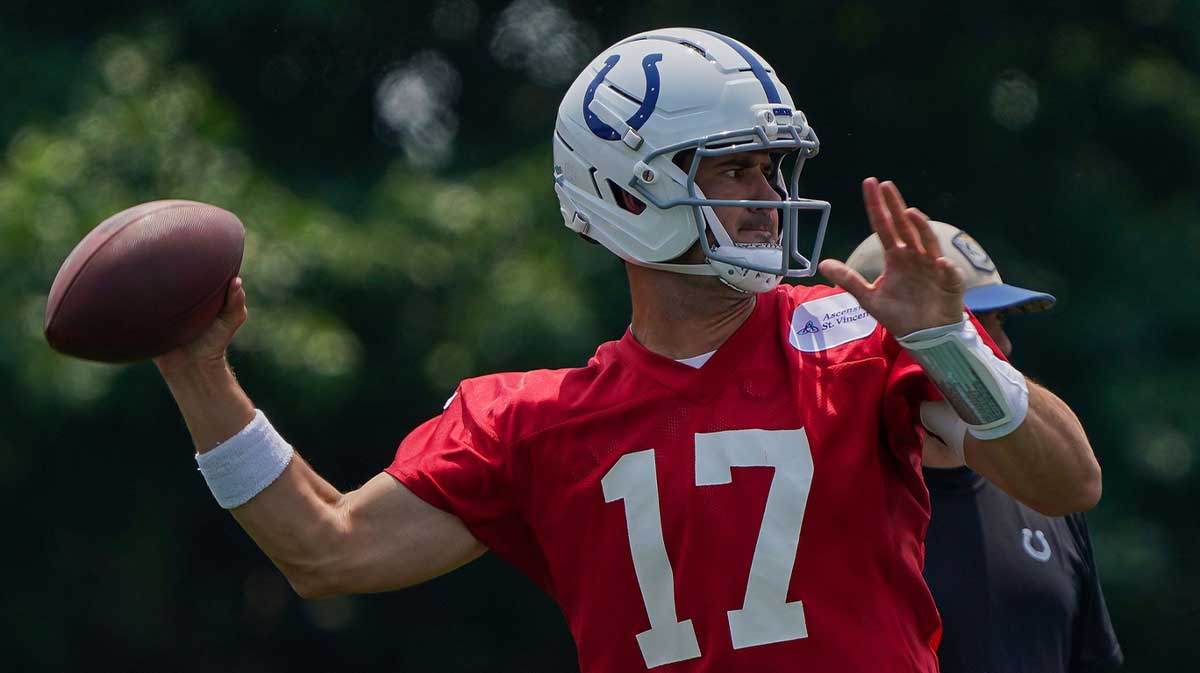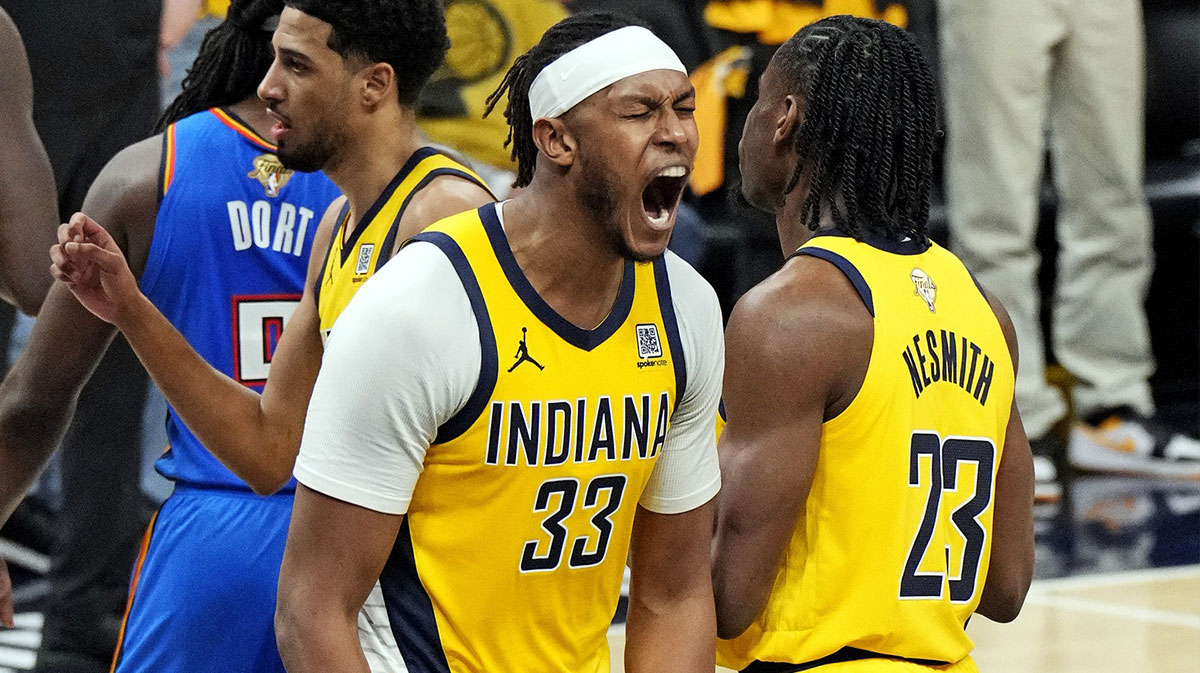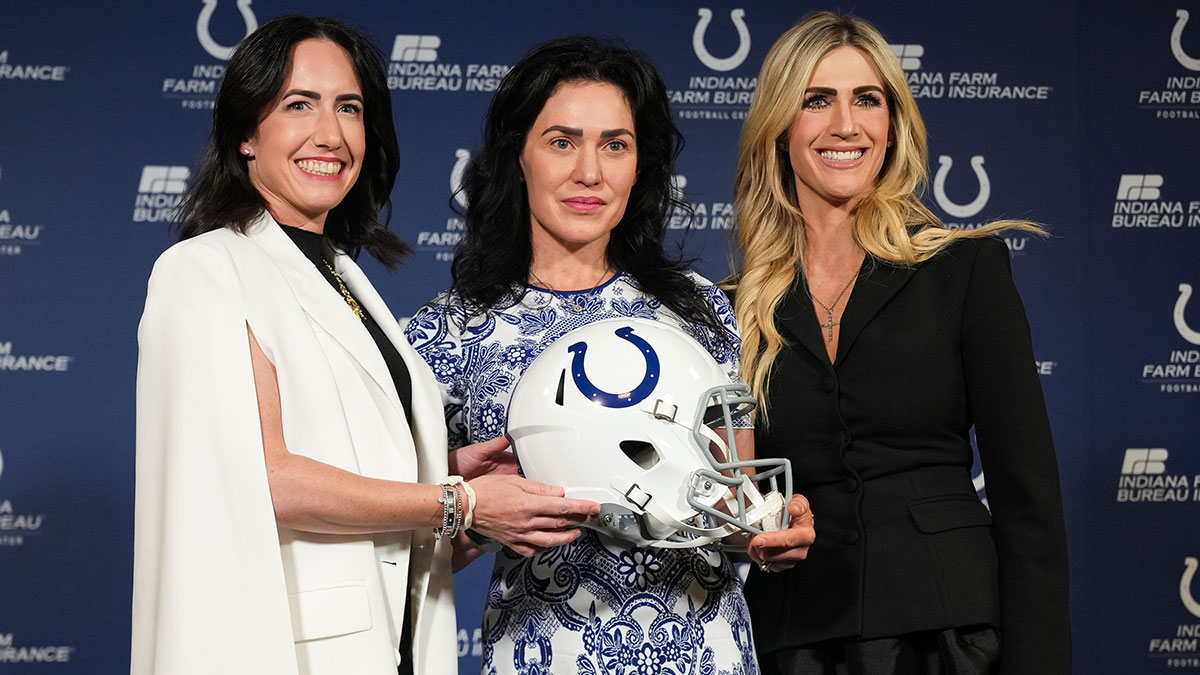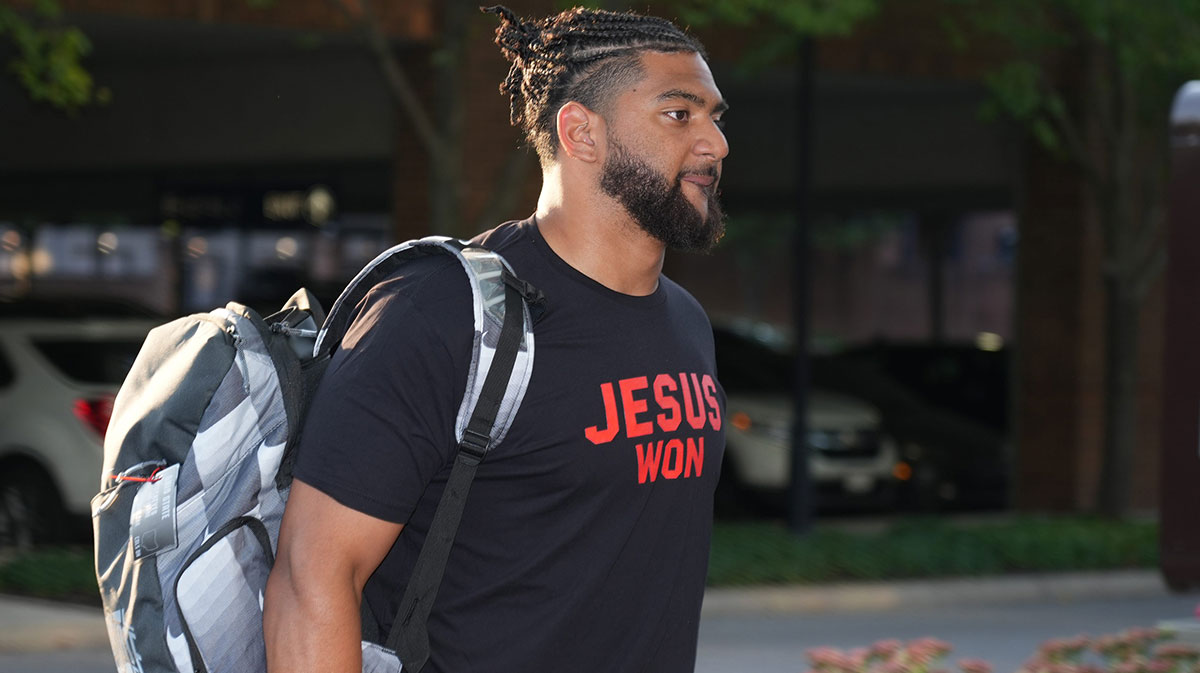Let's take a look at the 2018 NFL Draft class for all four teams in the AFC South (Houston Texans, Indianapolis Colts, Jacksonville Jaguars, Tennessee Titans), giving them each a grade for their selections.
3(t). Jacksonville Jaguars

Round 1 pick 29 – Taven Bryan, DT, Florida
Round 2 pick 29 – D.J. Chark, WR, LSU
Round 3 pick 29 – Ronnie Harrison, S, Alabama
Round 4 pick 29 – Will Richardson, T, North Carolina State
Round 6 pick 29 – Tanner Lee, QB, Nebraska
Round 7 pick 12 – Leon Jacobs, LB, Wisconsin
Round 7 pick 29 – Logan Cooke, P, Mississippi State
After going all the way to the AFC Championship game and nearly knocking off the New England Patriots, the Jags are a team with few major holes. Their biggest losses in free agency were wide receivers Allen Robinson and Allen Hurns, but the team felt comfortable moving on from them because of the emergence of rookies Dede Westbrook and Keelan Cole.
Jacksonville needs to start looking at their future salary cap situation and plan accordingly, and that ‘s exactly what they did with Bryan. Marcell Dareus's contract expires after the season, and Malik Jackson will most likely be let go after his deal is up. Bryan makes the team younger, cheaper, and more explosive.
While he is extremely raw, Bryan has the physical tools to be an elite DT. His first step off the snap is incredible, allowing him to be extremely disruptive inside. The Jags were already going to have one of the NFL's best defensive lines in 2018, and they only improved that position group.
While the Jags' WR room was solid, they couldn't pass up the chance to make it even better when Pittsburgh took James Washington one pick ahead of Jacksonville, leaving LSU's D.J. Chark on the board. At 6'3″, Chark has great size for the NFL, and his 4.29 speed made him one of college football's best deep threats last season. He sometimes struggles with tracking the football and is inconsistent, but even while he develops, he will command attention from defenses and open up the running game for Leonard Fournette.

Before the draft, Harrison was projected by some to be a first-round pick. Instead, he fell to the end of the third, where Jacksonville could not pass up his value. Tashaun Gipson and Barry Church are both very good starters and under team control for a while, but Harrison's explosive playmaking ability will earn him playing time nonetheless. He can play either safety position well, providing over-the-top coverage help and assisting in run support. He improves the secondary right now, and like Bryan, will give the team more salary cap flexibility in the years to come.
Depth was the Jags' target for the rest of the draft, and while they added some solid players, they also made a head-scratching decision when they selected Nevada QB Tanner Lee in the sixth round. Blake Bortles is entrenched as the starter, but backup QB was a need. However, it seems as if Jacksonville was the only team who felt as if he was the best QB on the board.
Lee has solid physical traits, but is woefully underdeveloped in the more refined parts of the position, throwing 37 interceptions compared to 46 touchdowns during his collegiate career.. The Jags could have gone with a different QB such as Riley Ferguson or Logan Woodside , or signed a free agent backup and improved their team with someone like Equanimeous St. Brown or Azeem Victor .
Their first three picks were very good, but after that, Jacksonville surprised most everyone with their selections. Bryan, Chark, and Harrison make the draft class a good haul, but it could have been even better.
Grade: C+
3(t). Houston Texans

Round 3 pick 4 – Justin Reid, S, Stanford
Round 3 pick 16 – Martinas Rankin, OT, Mississippi State
Round 3 pick 34 – Jordan Akins, TE, UCF
Round 4 pick 3 – KeKe Coutee, WR, Texas Tech
Round 6 pick 3 – Duke Ejiofor, DE, Wake Forest
Round 6 pick 37 – Jordan Thomas, TE, Mississippi State
Round 6 pick 40 – Peter Kalambayi, DE, Stanford
Round 7 pick 4 – Jermaine Kelly, DB, San Jose State
The Texans gave up their 2018 first-round pick in order to select Deshaun Watson in 2017. Even though the selection was fourth overall, Watson had a historic rookie season, despite it being cut short due to a torn ACL. It looks like the Texans have finally found their franchise QB, so it's hard to see any reason why they would regret the trade.
One thing they do regret is signing Brock Osweiler to a huge contract, which cost them their second-round pick this year to get rid of.
Although they didn't have any high picks, the Texans made the most of the selections they did have.
Reid was projected to go much higher than he did and will team up with Tyrann Mathieu to give Houston a versatile safety duo. Reid can play either box or deep safety and should be a fixture in Houston's defense for years to come.

The offensive line was one of the Texans' glaring weaknesses last year, and after trading Duane Brown to the Seahawks at the trade deadline, they needed to improve. Rankin has a chance to start right away, and even if he doesn't, he will provide solid depth while he develops into a starter.
Injuries ravaged the team in 2017, and one of the positions most affected was tight end. Multiple players were put on injured reserve and more depth was sorely needed. Akins will provide the offense with another weapon for Watson as well as insurance against another wave of injuries.
J.J. Watt and Jadeveon Clowney make up one of the NFL's best pass rushing duos, but the Texans needed more depth behind them. Ejiofor will be a very good rotational EDGE, and on passing downs could play with both Clowney and Watt to pressure the opposing QB.
If Deshaun Watson plays anything like he did in 2017, the Texans will have a great shot at making the playoffs. They were unable to make any huge additions due to a lack of first and second-round picks, but their selections will improve the team as a whole.
Grade: C+
2. Indianapolis Colts

Round 1 pick 6 – Quenton Nelson, G, Notre Dame
Round 2 pick 4 – Darius Leonard, LB, South Carolina State
Round 2 pick 5 – Braden Smith, G, Auburn
Round 2 pick 20 – Kemoko Turay, DE, Rutgers
Round 2 pick 32 – Tyquan Lewis, DE, Ohio State
Round 4 pick 4 – Nyheim Hines, RB, North Carolina State
Round 5 pick 22 – Daurice Fountain, WR, Northern Iowa
Round 5 pick 32 – Jordan Wilkins, RB, Mississippi State
Round 6 pick 11 – Deon Cain, WR, Clemson
Round 7 pick 3 – Matthew Adams, LB, Houston
Round 7 pick 17 – Zaire Franklin, LB, Syracuse
Heading into the draft, Indianapolis had three major problems: Andrew Luck's health, the offensive line, and the defense as a whole. If Luck is able to play, the Colts will be competing for a playoff spot, in large part because of how they addressed the other problems on their team.
The term “generational prospect” has lost much of its meaning, but Quenton Nelson is a player with legitimate Hall of Fame potential. He will immediately be the best lineman on the Colts and could make the Pro Bowl as a rookie. Guard is a very important position, and Nelson will anchor the Colts' line for the next decade.
On defense, linebacker was one of Indy's more glaring weak spots, and Leonard will help fix that. He is a rangy, athletic, and fast linebacker who can cover from sideline to sideline. He needs to add more strength to his frame, as he can get pushed around by offensive lineman, but his athleticism will be a huge boost to the linebacker corps.
The Colts decided to double-dip on guards early in the draft, taking Hernandez from Auburn. In an abnormally strong interior offensive line class, Hernandez is a first-round talent who fell victim to the numbers game. Keeping Andrew Luck upright was obviously a priority for Indianapolis this draft, and both guards will help to do not only that, but also drastically improve the running game.

Indianapolis already had at least one solid guard in Jack Mewhort, so they will be forced to sit one good player. Taking a tackle prospect who can slide in on either side like Connor Williams may have been a better choice, especially since Williams can also play guard.
Turay and Lewis will be rotational EDGE players, and both have the potential to develop into starting-caliber defenders. More explosive players, such as LSU's Arden Key and Florida State's Josh Sweat, were available, so Indy could have added variety to their incomers, but instead took two similar players in Turay and Lewis. Injuries have decimated the Colts' defense for the past few seasons, so depth is crucial, especially at a position as important as pass rusher.
A good NFL Combine performance vaulted Hines' stock into the fourth round, where he fell to Indy. Veteran Frank Gore left for Miami in free agency, so the Colts' backfield will be turned over to second-year player Marlon Mack and Hines. Hines projects to be more of a change of pace back in the NFL, which is exactly what the Colts needed.
On day three, the Colts decided to improve their depth at offensive skill positions and linebacker, with the most notable addition being Clemson's Deon Cain. T.Y. Hilton is a very good #1 wide receiver, but after him, the position isn't great. Cain has the size and speed to be a very good NFL player, and if he can expand his route tree and become more consistent, he could be the perfect compliment to Hilton and another weapon for Andrew Luck.
The Colts are in danger of falling into consistent mediocrity, but they did much to combat that trend in this draft. Their offensive line and defensive front seven, two of their biggest weaknesses, will be much improved. Even if Jacoby Brissett is under center, the team should still be competitive, and if Luck is healthy and back to his old self, Indianapolis should contend for a playoff spot.
Grade: B
1. Tennessee Titans

Round 1 pick 22 – Rashaan Evans, LB, Alabama
Round 2 pick 9 – Harold Landry, EDGE, Boston College
Round 5 pick 15 – Dane Cruikshank, S, Arizona
Round 6 pick 25 – Luke Falk, QB, Washington State
With only four selections in the draft, the Titans needed to add high-impact players, especially with their first two picks. They did just that, filling arguably the biggest hole on the team.
In his first and only season as a healthy starter, Evans performed extremely well, showing off a great ability to rush the passer as well as being stout against the run. He should start from day one and greatly improve the linebacker group for the Titans.
One of the bigger surprises of the draft was Harold Landry falling out of the first round. After a dominant 2016 season, Landry was injured in 2017 and his performance suffered. Still, in a rather weak EDGE class, he was one of the best prospects. Those injury concerns were apparently more serious than the general public knew, as Landry fell from a possible top-ten pick to the middle of the second round.

Lacking a great pass rusher, the Titans felt comfortable with Landry's medical history and jumped at the chance to take him. His speed and bend off the edge is the best in the class, and he should make an instant impact. While he needs to improve against the run, Landry will get a lot of work, even if he doesn't start.
With All-Pro Kevin Byard and Jonathan Cyprien, Tennessee is set at safety, but depth is never a bad thing. Cruikshank has good size and tested well at the Combine, and he should at least make a big impact on special teams.
Falk won't be challenging Marcus Mariota for the starting QB position, but his accuracy will make him an ideal backup. Mariota has been banged up a bit in his career, so it's good to have someone to fall back on.
Even if Cruikshank and Falk won't play much, Evans and Landry will immediately make huge impacts on the Titans' defense. Tennessee essentially was able to get two top-25 players with their first two picks, and both players fill a huge need. Quality over quantity worked for the Titans this year.
Grade: B+
The Jaguars were completely dominant at times last year, but the Titans also made the playoffs. If their QBs are healthy, both the Colts and the Texans should be competitive. The AFC South could end up as one of the NFL's better divisions this season.

